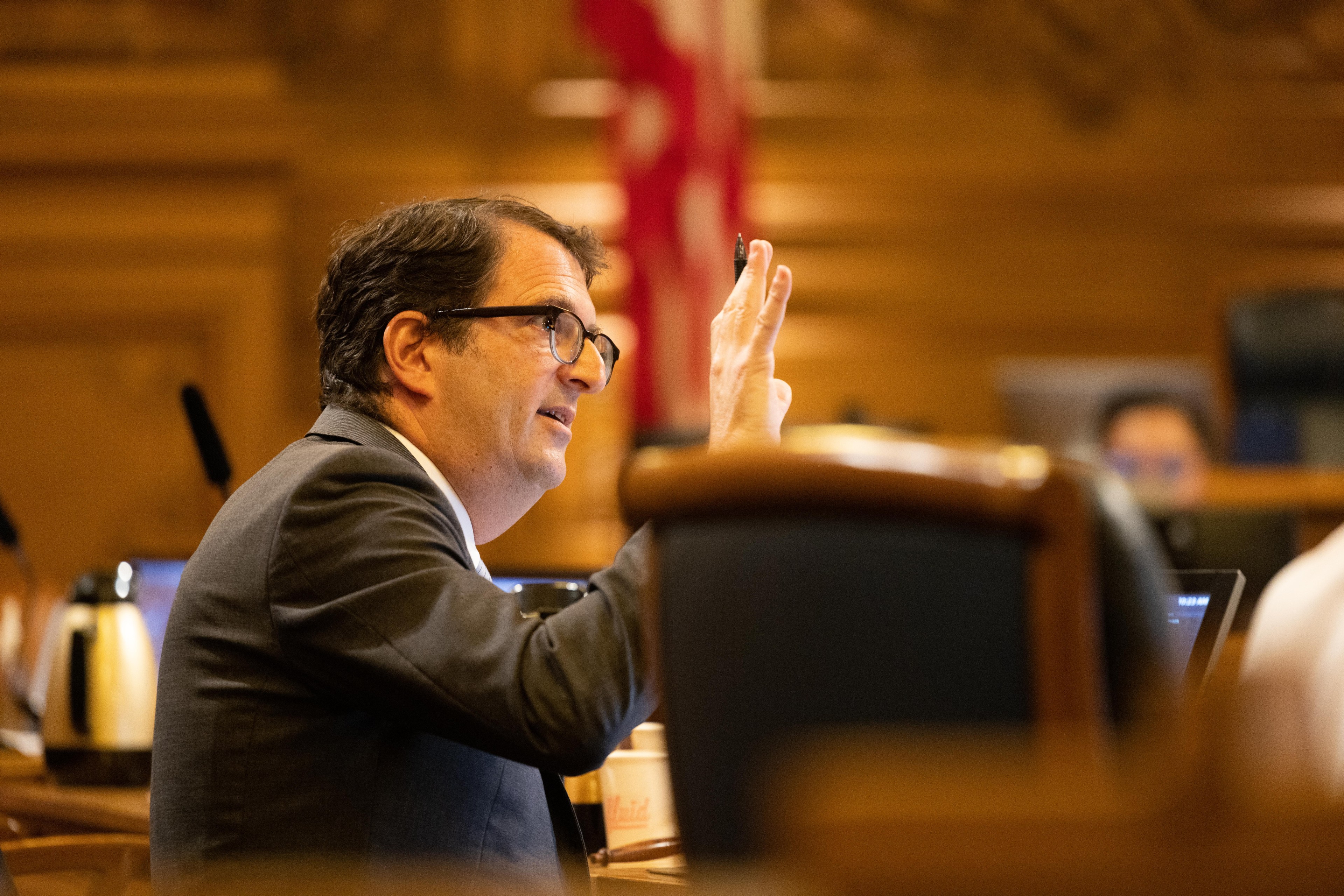This week is the year’s penultimate meeting of the Board of Supervisors, and looking at the agenda, one gets the feeling they’re racing to tie up loose ends before winter break.
On Tuesday, the supervisors will take another look at the San Francisco Police Department’s special equipment use policy, which turned into an international firestorm when it was revealed that a clause in the policy could allow use of force by remotely operated vehicles in rare situations.
They’ll also consider another resolution on autonomous vehicles, closing the Great Highway and Breed’s “Cars to Casas” legislation.
Wonks looking for the full kit and caboodle can go here.
Speaking of Robots
On Tuesday comes the second reading of legislation approving the San Francisco Police Department’s special equipment use policy, where a single clause dealing with use of force by remotely operated vehicles captured international attention. Critics made a last-ditch appeal on Monday for supervisors to kill the bill.
At least one vote has already turned over. Supervisor Gordon Mar stated in a tweet late Monday morning that he voted for the policy “despite deep concerns” with it and now says he regrets the vote.
I'm grateful to all who've expressed concerns with our vote authorizing SFPD to use robots to kill suspects in extreme circumstances. Despite my own deep concerns with the policy, I voted for it after additional guardrails were added.
— Gordon Mar 馬兆明 (@D4GordonMar) December 5, 2022
I regret it. I will vote no tomorrow. 1/4
District 5 Supervisor Dean Preston, who opposed the legislation along with Board President Shamann Walton and District 9 Supervisor Hillary Ronen, denounced the 8-3 vote in favor of the legislation in an interview on KPFA radio Monday morning, and spoke at a protest of the policy along with Walton and Ronen on the City Hall front steps shortly thereafter.
In addition to opposing the vote on policy grounds, Preston alleges that it violates the state law that mandates the local legislation. In a Dec. 4 letter to Mayor London Breed and SFPD Chief Bill Scott, Preston alleges that the committee process for the legislation failed to provide adequate public notice.
The public notice requirement was satisfied, according a spokesperson for City Attorney David Chiu, who authored AB481 when he served in the Assembly.
“Revisions to the policy that narrow the proposed uses of the equipment do not require a new 30-day notice period,” said Jen Kwart, Chiu’s spokesperson. “While SFPD complied with the notice requirement, the Board of Supervisors could choose to send a version of the legislation focused exclusively on the potential uses of robots back to the Rules Committee in order to solicit further public input.”
A second reading vote is usually a formality. Blocking legislation on second reading does happen, though rarely. But if deemed valid, Preston’s public notice angle could get the legislation sent back to committee, where it would sit over the holidays.
Cruising Without a Driver
Later in Tuesday’s meeting, the board will likely vote to approve another item expressing doubts over automation.
That’s a resolution declaring city policy with regard to Autonomous Vehicle (AV) services and programs, and urging the National Highway Traffic Safety Administration (NHTSA) to address the city’s specific concerns with the technology before granting any permits or incentives.
AV rideshare operator Cruise expects to expand its pilot service soon, and another, Waymo, is set to begin its own pilot program.
Meanwhile, the San Francisco Municipal Transportation Agency has a laundry list of concerns over operation of the vehicles, including safety issues leading to a crash in June and subsequent recall, which was articulated in a letter to Cruise and the NHTSA back in September.
The Return of ‘Cars to Casas’
Despite what Gary Numan may say, in cars is not the only way to live.
Mayor Breed’s “Cars to Casas” proposal, intended to expedite conversion of underused parking lots and other car-centric facilities to housing, is also—finally—on the board agenda this Tuesday.
First pitched in fall of 2021, the legislation stalled in committee as supervisors kibitzed over preservation and other concerns. A new version of the legislation, with a few amendments added, was created last July and is expected to be referred to the full board by the Land Use and Transportation Committee this afternoon.
Great Highway Weekend Closures
And if you’ve been missing weekend drives on the Great Highway during the pandemic-inspired closure of the road to auto traffic, get used to it.
On Tuesday, the board will likely vote to continue the pilot program keeping it car-free on weekends through 2025.
However, supervisors left open the possibility for future changes to the plan in committee. The Land Use and Transportation Committee made a duplicate file of the legislation and continued it to the call of the chair, should the Sunset’s newly elected supervisor, Joel Engardio, decide to take a crack at it when he assumes office in January.
The committee referred the original file to the full board without recommendation.
